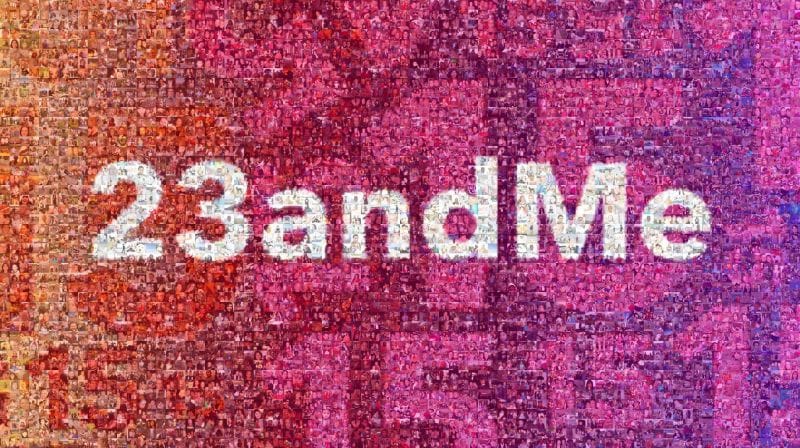
Adam Auton
@adamauton
Human Genetics
In the latest edition of "Huh, I didn't expect that to work", our latest paper shows that LLMs can outperform existing methods for identifying causal genes in genome-wide association studies. 🧵 medrxiv.org/content/10.110…
Analyses on 7.5M individuals from @23andMe confirm that drugs with genetic support are more likely to survive clinical development🧬->💊 👉large rare variant effects increase relative success rate by 3-4x 👉improved mapping to causal gene by 4-5x❗️ medrxiv.org/content/10.110…
The brilliant Sarah Senk, together with Taiyo Inoue, has just launched a podcast that explores the implications of AI for higher education: My Robot Teacher. Please give it a listen! #MyRobotTeacher #HigherEd youtube.com/watch?v=H2Tayc…
Yesterday was a hard day at 23andMe, and we said goodbye to a number of tremendously talented colleagues. If people have job openings in the genetics space that they'd like me to share with the impacted folks, please do post here.
Human genetics informs drug development🧬💊 👉GDF15 is a potential target for hyperemesis gravidarum. BUT fetal & maternal safety unknown❗️ ✅GDF15 loss-of-function allele carriers are fertile, have multiple children with no consistent overt phenotypes nature.com/articles/s4225…
Thank you to our customers and the @23andMeResearch team for this work on the genetics of #longcovid medrxiv.org/content/10.110…
This week in key Covid publications and preprints: —Increased risk of major adverse cardiovascular events 3-years out, irrespective of severity ahajournals.org/doi/10.1161/AT… —7T MRI showing brainstem inflammation months after severe Covid academic.oup.com/brain/advance-… —Long Covid individuals…
📌Publication alert: In a preprint from the @23andMeResearch team, we conducted one of the largest GWAS study of Long COVID and identified genetic links of chronic conditions with Long COVID. medrxiv.org/content/10.110…
Much-needed data on the genetics of #longCOVID in a new preprint by @23andMeResearch - GWAS of #LongCOVID identified 3 loci pointing to immune and thrombo-inflammatory mechanisms 🔥 @ninaadsc 1) HLA-DQA1–HLA-DQB 2) ABO 3) BPTF–KPAN2–C17orf58 (1/) medrxiv.org/content/10.110…
We're looking for a scientific lead for our long standing (15 years!) Parkinson's disease research program. The program includes over 35k genotyped, consented individuals with PD. If you have a passion for PD and people living with PD, check it out: 23andme.com/careers/jobs/7…
It is “the next thing in the field of ancient DNA”, says Éadaoin Harney, a population geneticist at consumer-genetics firm 23andMe in Menlo Park, California. “It’s a new way to study human history.” nature.com/articles/d4158…
Delighted to see this out. What can the 23andMe database tell us about Lp(a)? The indefatigable @mvholmes walks us through it!
In a preprint from the @23andMeResearch team, we used Mendelian randomization to explore the genetically-predicted causal effects of Lp(a) on a range (n=489) of human traits and diseases. medrxiv.org/content/10.110…
We're looking for a Senior Bioinformatician to join our team, working to make uncovering novel genetic insights faster, easier, and more enjoyable! Please consider sharing: 23andme.com/careers/jobs/7…

After >4 years, I’ve finally caught Covid. 😕 Thankfully seems to be a mild case so far. But I’ve lost my sense of smell - such a strange experience! Reminds me of our paper from a couple of years ago. 🦠🧬 nature.com/articles/s4158…

A weekend read for you with more of my thoughts on the recent discussion on the value of human genetics in predicting drug success gwasstories.com/p/human-geneti…
Many of you might be aware of the commonly quoted success rate of ~10% in drug development. One of the efficient ways to rise this number is to add human genetics insights into the pipeline, as illustrated in the below plot from a 'Views and News' article I contributed to…
Many of you might be aware of the commonly quoted success rate of ~10% in drug development. One of the efficient ways to rise this number is to add human genetics insights into the pipeline, as illustrated in the below plot from a 'Views and News' article I contributed to…
Nice work from 23andMe researchers further supporting that drug targets with genetic support are more likely to have a clinical impact/success medrxiv.org/content/10.110… But what is going on here with UKBB estimates? Too few obs=> unlucky at the (0, 1e-50] range?
There’s still a massive amount of value left to be had in utilizing genetics for target discovery; we’re still just scratching the surface. A nice thread on our latest preprint, showing that more scale = more useful target insights. Comments welcome!👇
Previous papers have shown that drug targets with supporting genetic evidence can have twice the success rate when reaching clinical trials. In our most recent paper (medrxiv.org/content/10.110…), we looked at how data from @23andMe can provide additional genetic evidence. 🧵1/8
The human chromosomes are numbered incorrectly (The fourth in an irregular series of threads about #Bioinformatics.) As most people know, 22 of our chromosomes are numbered from longest to shortest, plus we have X and Y... 1/6
A new genome-wide association study of coffee intake in US-based 23andMe participants explores the relationships of coffee intake with multiple biomarkers, health characteristics, and lifestyle traits. nature.com/articles/s4138…
Fascinating analysis of the ancestral origin and dispersion of Parkinson's disease-associated LRRK2 G2019S variant in 23andMe participants. Kmiecik et al. Brain academic.oup.com/brain/article/…